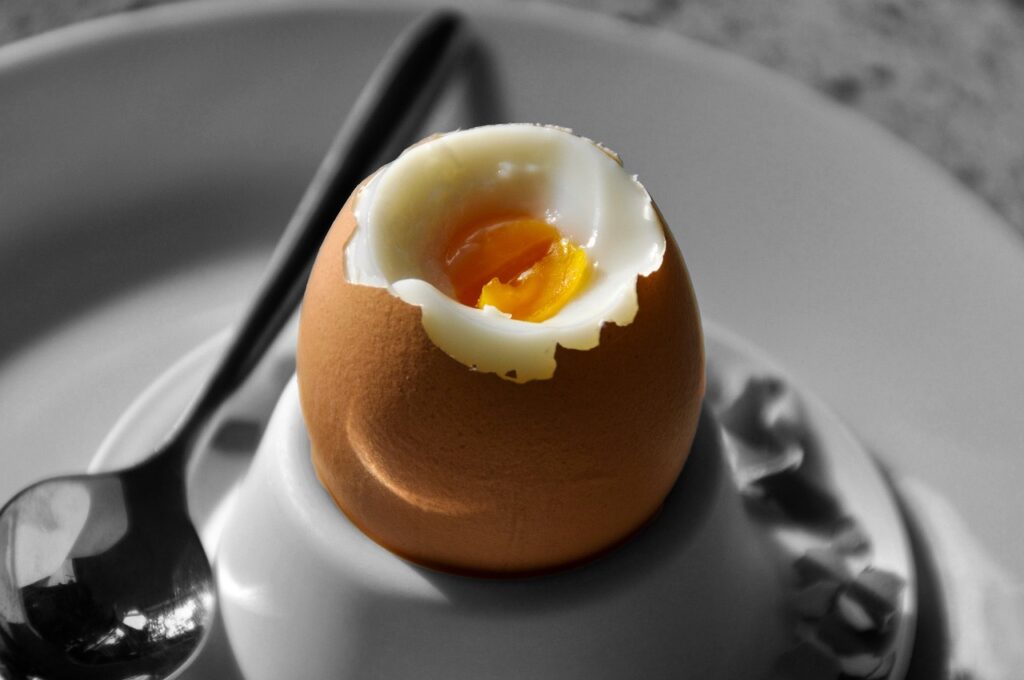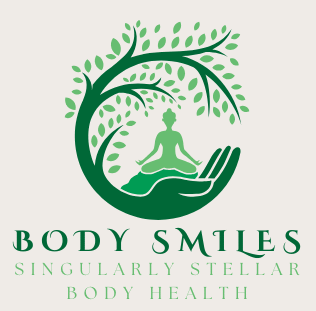Tooth extraction is a common dental procedure that can leave patients wondering what foods they can eat during or after the healing process. One of the questions that often arise is whether it is safe to consume eggs after tooth extraction.
Eggs are a nutritious and versatile food that can be prepared in various ways, but the texture and temperature of the egg can be a concern for individuals recovering from dental surgery.
In this article, we will explore the factors that determine whether or not eggs are a suitable food choice after tooth extraction and provide some tips on how to incorporate them into your diet while promoting healing and avoiding discomfort.
Can You Eat Eggs After Tooth Extraction?
Yes, you can eat eggs after tooth extraction. Eggs are a great source of high-quality protein, vitamins, minerals, and omega-3 fatty acids which help with the healing process. Scrambled eggs are an ideal option as they are softer and easier to chew and swallow than other types such as hard-boiled or omelets.
During this time, it is best to focus on consuming soft, liquid foods to aid in the healing process. Additionally, it is important to avoid hot, cold, hard, and sticky foods, as these can irritate the tissue in the socket.
It’s best to wait at least 10 minutes after they are cooked before eating them to ensure they are not too hot.
Recommended: Can You Drink Milk After Tooth Extraction?
How long after tooth extraction should I wait before eating eggs?
After tooth extraction, it is generally advised to wait at least 24 to 48 hours before introducing anything that’s hard or crunchy, such as eggs, back into your diet. After the 24- to 48-hour period, it is considered safe to eat eggs, but it is best to start with soft-boiled or scrambled eggs or even poached eggs. Egg-based products such as quiche and frittata are also safe, as long as they are cut or broken into small pieces.
To ensure that the eggs are not too hot, wait about 10 minutes before eating them after they are cooked. Additionally, it is important to monitor your recovery and stop any meal if you experience any pain or discomfort.
What To Consider When Eating After Tooth Extraction
1. Consult your doctor about diet after tooth extraction
When consulting your doctor about diet after tooth extraction, you should consider the types of foods to eat, the timeframe for eating regular food, and any potential risks associated with eating certain foods. Foods that should be eaten after a tooth extraction include soft, easy-to-chew foods like mashed potatoes, applesauce, oatmeal, yogurt, pureed soups, and broths.
Additionally, you should avoid eating hot, cold, hard, and sticky foods, as these can irritate the healing tissue in your mouth.
Lastly, it is important to be aware of the potential complications associated with eating solid foods too soon after the extraction, such as infection or irritation of the tissue in the socket.
The medical information provided in this article is provided as an information resource only. This information does not create any patient-physician relationship and should not be used as a substitute for professional diagnosis and treatment.
2. Consider the type of procedure and the location of the tooth.
When eating after a tooth extraction, consider the type of procedure and the location of the tooth. In contrast, it is equally important to take care of your mouth after the tooth extraction procedure. Avoid smoking and drinking alcohol and ensure to clean the extraction site by gently rinsed with warm saltwater.
Additionally, practice good oral hygiene habits, such as brushing twice a day and flossing, to help reduce the risk of infection and promote healing.
Recommended: Can You Drink Cold Water After Tooth Extraction?
4. Consider your preferences and needs
When eating after a tooth extraction, it is important to consider the texture and temperature of the food you consume. Soft foods such as mashed potatoes or yogurt are usually the best option as they are easier to chew while avoiding food that is too hot or cold can help reduce inflammation and discomfort.
Additionally, salt and pepper, and other spices should be avoided as the added flavor can cause burning and stinging sensations in the mouth. Eating small, frequent meals may also be beneficial, as it can help reduce swelling and discomfort.
5. Take into account any medications you need to take
When taking medications after a tooth extraction, it is important to consider a few steps. First, avoid alcohol completely after the tooth is pulled, as alcoholic beverages can delay recovery and interact negatively with any prescribed medications.
6. Check for food restrictions from the extraction site
When eating after a tooth extraction, it is important to consider a few food restrictions. Hot drinks, alcoholic beverages, and drinks consumed with a straw should be avoided. Soft foods like smoothies, ice cream, and eggs are good options while healing. Be sure to avoid using a straw when drinking your smoothies and liquids, as the sucking motion can increase your risk of developing a dry socket.
8. Ask questions if you have any concerns or questions
What questions should you ask if you have any concerns or questions about eating after tooth extraction?
- What type of foods should I avoid eating after my tooth extraction?
- Are there any beverages that I should avoid?
- Is it okay to take pain medication before and after eating?
- How long should I wait before resuming normal eating habits?
- What types of food and drinks can I have to make sure I am nourishing myself properly?
- Are there any foods I should eat more frequently to ensure speedy recovery?
- Is there any particular type of food I should try to avoid during my recovery period?
- Is there anything else I should be aware of when considering my post-operative diet?

What Are The Benefits Of Eating Eggs After Tooth Extraction?
1. Eggs are a rich source of protein, vitamins, and minerals.
Eggs are an excellent food to eat after tooth extraction because they are rich in proteins, vitamins, minerals, and essential fatty acids, all of which are beneficial in the healing process.
Protein helps the body heal and repair itself, while vitamins and minerals are essential for cell repair and tissue regeneration. Omega-3 fatty acids, found in eggs, have anti-inflammatory properties and help reduce inflammation.
Vitamin A is important for maintaining the skin’s natural healing process, while B vitamins promote energy production and the formation of blood cells.
Recommended: Can I Drink Beer After Tooth Extraction?
Additionally, eggs contain zinc and selenium, which help in healing and protecting cells from damage caused by free radicals.
Finally, eggs have a low glycemic index, which helps keep blood sugar levels stable and reduces the risk of infection. Thus, consuming eggs on a regular basis can be beneficial in the healing process after tooth extraction.
2. They can help you recover after surgery quicker
Eating eggs after tooth extraction can help speed up the recovery process due to their high protein, vitamin, and mineral content. Eggs are a great source of protein, containing essential amino acids that are vital for tissue regeneration and cell repair.
3. They can help reduce inflammation and swelling
Eating eggs after tooth extraction can help reduce inflammation and swelling due to their rich content of proteins, amino acids, omega-3 fatty acids, vitamins A and B, zinc, and selenium. These nutrients help support the body’s healing process, repair of tissues, formation of blood cells, and protection of cells from damage caused by free radicals.
4. They can help you recover from surgery-induced nutrient deficiencies
Eating eggs after tooth extraction can help recover from surgery-induced nutrient deficiencies due to the high protein, omega-3 fatty acids, vitamin A, B vitamins, zinc, selenium, and low glycemic index content found in eggs.
5. They can provide strength to your bones and teeth
Eggs are a great source of protein and other nutrients to help strengthen bones and teeth after tooth extraction. They are high in calcium, which helps to build and maintain strong bones and teeth. Additionally, eggs are a great source of phosphorus, which helps to absorb calcium and plays an important role in maintaining healthy teeth.
Additionally, eggs have vitamins A, B, and D, which all help to keep teeth and bones strong. Eating eggs after the extraction can help to rebuild and strengthen the bones and teeth, which can help to speed up the recovery process.
6. They can help you stay full longer
Eating eggs can help you stay full longer after a tooth extraction due to their high protein content. Protein helps to keep you feeling full for a longer period of time, which can be beneficial during the healing process. Eggs are also easily digestible, making them a great choice for those on a soft food diet.
7. They can help you maintain a healthy weight
Eating eggs after tooth extraction can help you maintain a healthy weight and immune system due to their high protein content. Eggs contain zinc which is vital for wound healing and contributes to maintaining a healthy weight and immune system.
Recommended: Healthy Spinach Egg Fry Recipe Made Easy (Video)
8. They can help you achieve overall health and wellness
Eggs are an excellent source of protein and essential vitamins and minerals, making them a perfect post-tooth extraction meal for those looking to achieve overall health and wellness. Eating eggs after tooth extraction can help reduce inflammation, promote wound healing, and aid in tissue repair, all of which are incredibly important for achieving overall health and wellness.
What Are The Risks Of Eating Eggs After Tooth Extraction?
Eating eggs after tooth extraction carries certain risks. If you consume them too soon, you may disrupt the healing process and cause more pain and discomfort. Additionally, trying to eat solid foods while still numb from the local anesthetic could result in you accidentally biting your cheek or tongue. Waiting at least 24 hours before introducing eggs or any other solid foods into your diet is critical to ensure proper healing and prevent further damage.
How Many Eggs Can You Eat After Tooth Extraction?
How many eggs can you eat after tooth extraction? It is generally recommended to wait for at least 24 to 48 hours following oral surgery before introducing anything that’s hard or crunchy back into your diet, including eggs. After this time, it is considered safe to eat at least two eggs and at most four eggs in a variety of forms, such as scrambled, soft-boiled, and poached, or in egg-based dishes such as quiche and frittata.
However, it is important to keep in mind that people will heal differently and should consult with their dentist for specific instructions about their individual eating habits.
Recommended: Healthy Spinach Egg Fry Recipe Made Easy (Video)
Conclusion
Eggs can be a suitable food choice after tooth extraction, provided that they are prepared in a way that is easy to chew and swallow, and that they are consumed at a temperature that will not cause discomfort. Eggs are a rich source of protein, vitamins, and minerals that are essential for healing and recovery, making them an excellent addition to the post-extraction diet.
However, it is important to follow the advice of your dentist or oral surgeon regarding what foods to eat or avoid after tooth extraction. Remember to also maintain good oral hygiene practices during the healing process to promote a speedy recovery and avoid any complications. With proper care and attention, you can enjoy a nutritious and balanced diet while recovering from tooth extraction.







More Stories
10 simple tactics to tackle anxiety and lift your mood
7 Famous Celebrities Who Weighs 165 Lbs In Kg (74.8 Kg)
Preparing for the Next Pandemic